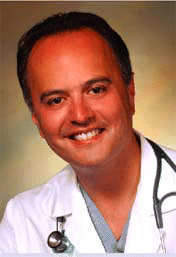The carrot-and-stick strategy proposed in California has already proven untenable in Kentucky, New Mexico, and West Virginia, which all imposed taxes on physician gross revenue, only to repeal them later. West Virginia, which assessed physicians a 1.8% tax on gross revenues in 2002, backed off in 2005. The combination of the tax and medical malpractice premiums that had tripled within a few years drove one-third of the state’s doctors into retirement or out of state.
Explore This Issue
February 2008Even more dangerous are attempts by state officials to coerce physicians into accepting public payers. Beleaguered doctors in Illinois face a significant assault on their professional autonomy. Attorney General Lisa Madigan filed an antitrust lawsuit in June against the Carle Clinic Association and Christie Clinic for declining to enroll new Medicaid patients. The lawsuit alleges that the medical groups collectively boycotted new Medicaid patients by adopting identical policies in 2003. The two large multispecialty groups, which include more than 90% of Champaign County’s physicians, have declined Medicaid enrollees who either were not already registered patients or who had not seen a clinic physician for at least three years. In 2006 the Carle Clinic saw more than 31,000 Medicaid patients from 84 countries, according to CEO Bruce Wellman, MD. He told www.amednews.com , If the government can force private businesses to accept below-cost rates, what sort of practice environment are you going to create?
Illinois’ antitrust lawsuit also claims that physician leaders of the multispecialty groups colluded rather than made independent business decisions about Medicaid patients. If the action is successful, Illinois could force physicians to accept new Medicaid patients and to recover civil fines and damages for antitrust activities. Although the suit alleges that the physicians’ restrictive policies left many of the 20,000 Medicaid eligible children and adults at risk by leaving them with fewer choices to obtain quality medical care, it inhibits physicians from cooperating on solutions to covering the uninsured. The lawsuit alleges that physicians talking to colleagues in other medical groups to devise a collaborative approach to covering the uninsured colluded against Medicaid recipients.
Heading for the Exits?
What will all the attention given to the uninsured mean if physician reimbursement is so low or so burdensome that doctors opt out of the plans? Dr. Dale pointed to the difficulties that physicians have in running an office, keeping up with state and federal regulations, and having flat Medicare reimbursement (which, given inflation, is an actual reduction in payment) for eight years. We need heat, light, and employees to run an office. The average annual cost for health insurance is $6000 to $7000. Massachusetts set the premium rate at about one-third of that. Doctors can’t wish away the high costs of tests and other technology, he said. I feel terrible about the people in Massachusetts who were uninsured and bought these subsidized policies. They are so relieved to have a means to pay for health care, but no doctor who can help them, he added.

Leave a Reply